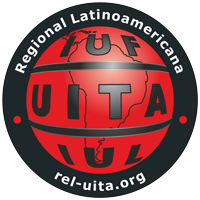

prices paid to producers
A decision that ruins
thousands of workers
The banana industry is one of the leading activities in Latin America because of the level of labor it requires. Now German supermarket chain Aldi, which basically sets the sale prices for the fruit, has unilaterally decided to reduce what is paid per crate, a decision that could bankrupt tens of thousands of producers.
So important is this European chain in the market that the term “Aldi price” was used in a series of negotiations ostensibly held to agree on a price for the fruit, but in which what actually happened was that a price was imposed, as always, by the party that calls the shots.
In the European market, supermarkets hold far more power than fruit producers; and infinitely more power than the Latin American workers who plant and harvest the fruit.
Well, Aldi has decided to take 7 cents off what it pays per kilo of banana. That may not sound like much, but it actually sums up to a lot: 1.25 dollars less per crate.
Other chains will follow in Aldi’s footsteps, citing “market reasons,” the relationship between high supply and low demand, the exchange rate, fuel prices, and so on and so forth.
Mere excuses
What is at stake today is, no less, the future of the 400,000 workers whose livelihoods depend on Latin America’s banana industry and who in the current pandemic expose themselves to the virus every day, risking their lives.
Aldi and other large supermarket chains are always going on about how they adhere to corporate social responsibility standards and how they contribute to the sector’s sustainability.
However, these decisions prove that what they actually adhere to is a ‘do as I say and not as I do’ philosophy.
